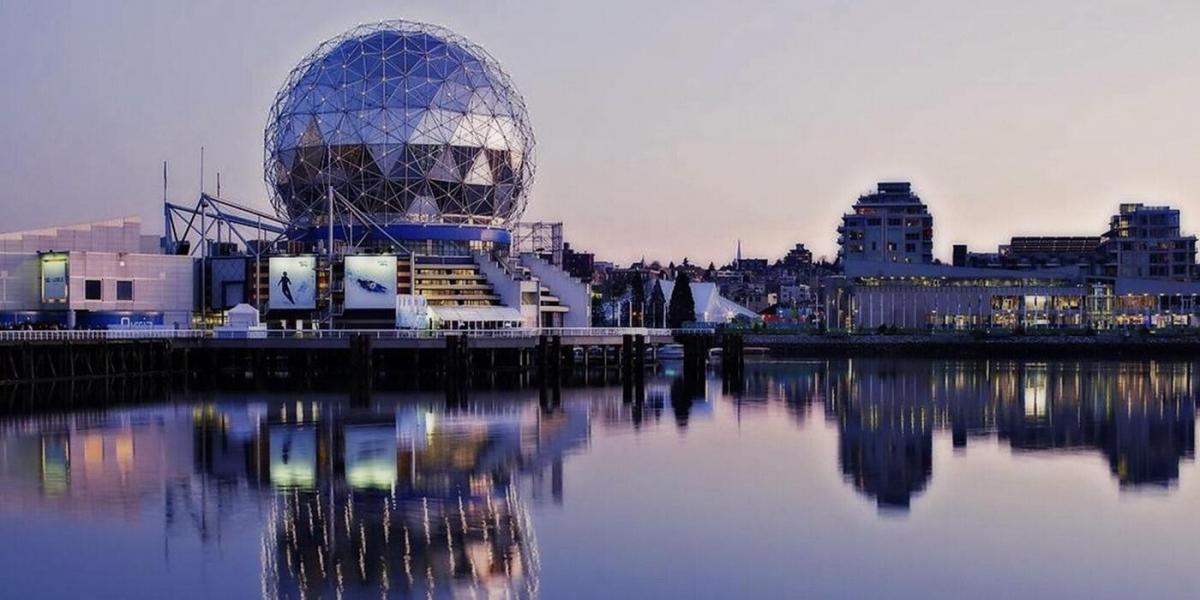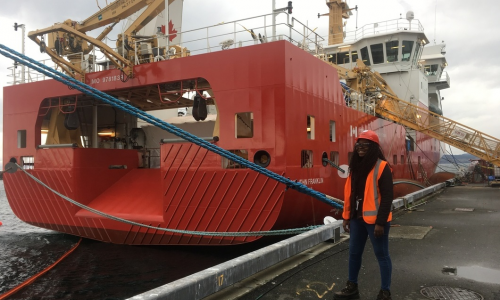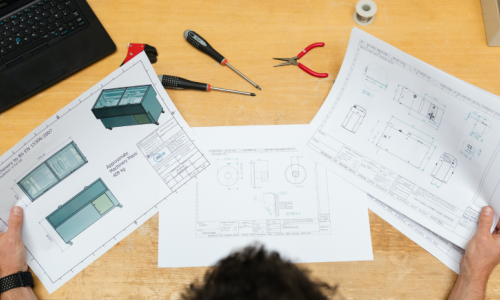
Imagine a full-time position where, at the end of an eight hour day, the letters on your computer screen blur and your number one desire each evening is to go home. We’ll call this Job A.
Now imagine Job B. Job B isn’t your regular 9 – 5 office job: it requires you to build LEGO vehicles, lead demos with geckos and hedgehogs, become a face paint master, team up with coworkers to build ten-foot tall towers, plant vegetables and tea herbs, and learn about the world around you with others. Would you accept this job offer?
I sure did.
For the last four months, I have been employed with Science World British Columbia, a not-for-profit organization that inspires people of all ages to engage with different sciences and technologies. Our facility is like a zebra hiding amongst a herd of horses: it’s the only lit up, dome-shaped building you’ll find in Vancouver.
As a Science Facilitator, I had two primary goals. The first – and the easier of the two for me to achieve – was to be enthusiastic and provide guests with wonderful customer service to ensure that all needs were met and exceeded in their time at Science World. With over three years of customer service experience in the food and retail industries, making someone smile, making a family’s day, or saying hello to as many people as possible have always been accomplishments I take great pride in.
The second task, on the other hand, was initially a challenge for me. I wanted to inspire curiosity by initiating investigative conversation with guests exploring our exhibits. To do this, I learned how to form hypotheses with others to explain why or how a particular aspect of our world works as it does instead of listing off rehearsed textbook explanations. Through daily practice, it became easier to put on my scientist thinking cap and engage guests with inquisitive questioning, cool demonstrations, or a simple “You have to see this cool thing I just discovered!”
Many of my favourite conversations happened in Search, a gallery housing live critters, dinosaur bones, and other natural history artefacts. As any avid animal enthusiast would, I consulted the Animal Handling logbook at the beginning of my hour to see what live animal presentations I could do while in the gallery. I had an absolute favourite “inquisitive question” to ask guests during corn snake demonstrations: how on earth do snakes go to the bathroom?
As I discovered during my co-op, children (and, let’s be honest, most adults) love discussing pee and poop. Hence, snakes pooping through their mouths or exploding because they have no poop escape route are both thrilling thoughts. Such conversations produced zany and innovative hypotheses that exercised everyone's creativity -- mine included! Eventually, I explain to guests that snakes poop every two weeks through their cloaca, which is a discrete opening near their tails. Neat, huh?
At Science World, co-op students also complete a mini-project that helps give back to the Science World community. These projects are assigned depending on an individual's expertise and vary from the creation of a new demo or program activity to supplementing existing galleries with new displays. With passions for journalism, biology, and science communication, writing science news posts for the organization’s website was the King Kong of all dream projects to me. Unlike my past writing endeavours, I didn’t have precise deadlines or word counts to follow for this project. While this new system was liberating, I had to manage my time and project pacing for the first time as a result!
Besides strengthening my social skills, critical thinking, and written communication abilities, this co-op helped me conquer fear of the unknown by taking on new responsibilities to widen my comfort zone. For example, my fellow co-ops and I memorized minute-long opening and closing film speeches for up to two hundred people in our five-story tall OMNIMAX theatre. Naturally, I was terrified to do my first solo rendition of the speeches and even had a nightmare about a mid-speech power outage. Yikes.
But, I still did it! Over one hundred OMNIMAX speeches later, the prospect of a two hundred person audience no longer ties my tongue into knots. I've even come to genuinely enjoy presentations because I’ve grown so confident in public speaking scenarios that would petrify most university students!
Later in the semester, I was also trained to lead school programs and Super Science Club (SSC) sessions, which were both invaluable learning experiences for me. School programs are hour-long, in-building learning sessions that meet B.C. education curricula in particular subject areas. For example, Roller Coaster – which is the program I learned – teaches force, gravity, and friction to Kindergarten to Grade 2 audiences by building a ramp and eventually engineering a roller coaster. Though I had previous classroom experience with Let’s Talk Science through SFU, I hadn’t ever really taught a class before. As cheesy as it is, practice makes perfect. By the end of my term, I knew what facilitation techniques maximally engaged my workshop kids and got them excited about physics!
Likewise, Super Science Club facilitators drove out to inner-city elementary schools for hour and a half long, weekly classes on a range of topics like recycling, solar power, and urban wildlife. These sessions were tricky for me to lead because there was no school staff supervision during these programs. Keeping the class under control by putting your foot down as an educator was paramount to providing students with the best possible learning experience. I clearly remember the first day I had to give a child a time out for throwing rocks because that was the my first time ever disciplining a student.
Through all of these amazing instances of personal and professional growth, I was lucky to work alongside a team of humble, diverse, and talented individuals ranging from Biological Anthropologists and comedians to Early Childhood Educators, past Co-ops, parents, undergraduates, and graduate students. The Science World community is more of a wacky little family than anything: everyone is friendly, good-humoured, and open to all questions. After-work buffet and pub hang outs are a regular occurrence within our team.
In summary, I have loved every moment of my first co-op and now truly appreciate how much an individual can grow in such little time. Though it's only been four months since I first became a Science Facilitator, Science World became a second home to me at some point in these last few months, and I will forever be grateful for the wonderful opportunity I’ve been given and the opportunity to continue working with the company part-time. I am more excited than ever to see what my next adventures have in store for me.












